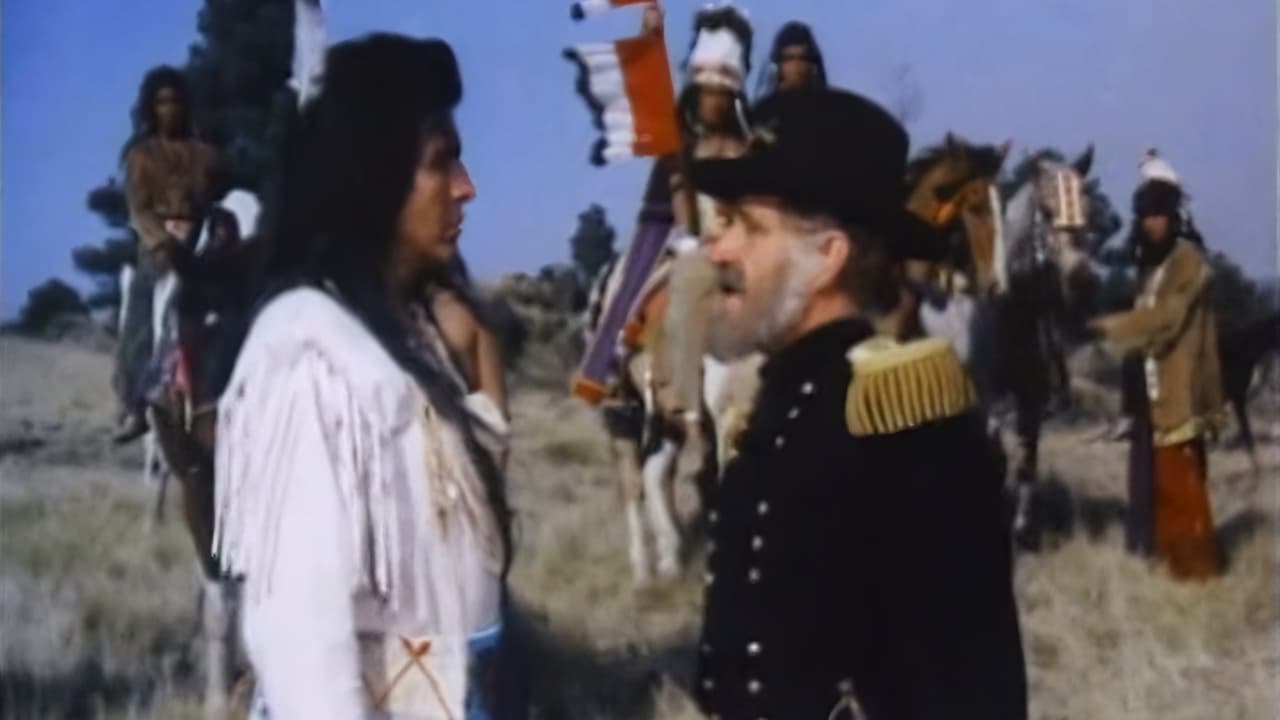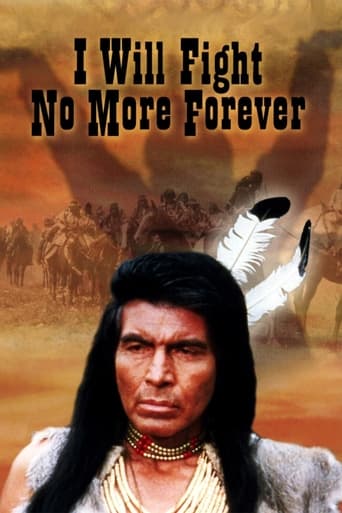

It isn't all that great, actually. Really cheesy and very predicable of how certain scenes are gonna turn play out. However, I guess that's the charm of it all, because I would consider this one of my guilty pleasures.
... View MoreAmazing worth wacthing. So good. Biased but well made with many good points.
... View MoreThere's no way I can possibly love it entirely but I just think its ridiculously bad, but enjoyable at the same time.
... View MoreYes, absolutely, there is fun to be had, as well as many, many things to go boom, all amid an atmospheric urban jungle.
... View MoreWhen this film was made in 1975 it was almost 100 years since the Nez Perce Indian tribe made its final stand for dignity and pride. That was no longer left to them after they were ordered from their ancestral lands in Eastern Oregon to a reservation in Idaho. I Will Fight No More Forever was their Chief Joseph's immortal words as he was now concerned with simply survival of the Nez Perce tribe and culture.The man charged with delivering this ultimatum which he regarded as distasteful was General Oliver O. Howard for whom Howard University is named after. Howard is played by James Whitmore is a figure of both duty and compassion. But as a soldier duty comes first. His conflict is brought out in many conversations with Sam Elliott playing one of his officers who quite bluntly said he never signed on for duty like this.The film sticks pretty close to the facts as they unfolded in 1877. What the back story of the film is about is that the Nez Perce up to that point had not taken up arms against the whites, preferring to accommodate. When they could no longer do that however, Chief Joseph who had no military experience as such proved to be a resourceful commander, leading his tribe in a defensive retreat that lasted for months.Ned Romero plays a magnificent and proud Chief Joseph who in the end has to bow to reality. This is a fine film, highly recommended about a bitter and distasteful yet heroic incident from the Nez Perce point of view.
... View MoreThis is a great rendition of the true story of the noble-yet-futile struggle of Chief Joseph and the Nez Perce to retain their independence and tribal life. At one poignant moment, General Howard (in an amazing portrayal by James Whitmore) intones gravely to his Colonel (memorably portrayed by Sam Elliott), "Read Your History." Then, he continues, the weak are always conquered and subjugated by the strong. The colonel retorts that when the strong become immoral, the day will come that they cease to be strong. This was true in 1877, and the parallels between our self-righteous, duplicitous and brutal behavior then and now are frighteningly similar to today's America. Ned Romero does a great job of conveying the nobility, leadership, and tactical brilliance of Chief Joseph. And the native American actors who play the other Nez Perce are uniformly terrific. This excellent movie should not be missed.
... View MoreThe story itself is powerful and engrossing on its own merits. The Nez Perce who had signed a treaty with the government to inhabit the Oregon River Valley were given an ultimatum by the US government in 1877 voiding that treaty. They had four days to decide whether to move or fight. General Howard -- after whom Howard University is named -- went to Congress personally to fight against this injustice, but in the end, as a general, felt compelled to execute his orders, even though he knew them to be unjust. He hates doing this because he considers Joseph a great Chief and a friend; his wife even made a doll for Joseph's expectant wife. Meanwhile, bitter at the sting of more injustices but resigned to reality, Chief Joseph (a breathtakingly great performance by Ned Romero) decides that it is in the best interests of the tribe to acquiese. But a civilian volunteer shoots and kills two of the Nez Perce delegation under a flag of truce, and the tribe fights for its survival. Now, even though General Howard (sympathetically portrayed by James Whitmore) knows the Army's volunteers fired first, he is compelled to attack the Nez Perce to attempt to round them up to the reservation. Too late. The Nez Perce have already left, attempting to find freedom, eventually trying to cross the Canadian border, while every step of the way, the Army tries to hunt them down and capture Chief Joseph. The movie, wisely, maintains its focus on the this journey and struggle. Gallantly, the tribe scales impossible terrain. Joseph frustrates the Army with false trails, games of cat-and-mouse, and resisting revenge. As the frustration wears on and the newspapers catch wind of the story, General Howard's life becomes a living hell. What was supposed to have been a two-week maneuver has been become a five-month campaign with hundreds of soldiers and Indians killed in the process. The General gets moral support from Colonel Miles (portrayed by Sam Elliott perhaps just a little bit too earnestly and emphatically); he speaks Nez Perce and Sioux and is disgusted by his government's lack of morals. His character will get on the nerve of those viewers who dislike "preachy" films. Every thing else feels amazingly authentic. The tribal counsels and increasing weariness as the struggles continue are vividly and unforgettably portrayed by a mostly Native American cast. The score and cinematography are quite gripping. Some of the technical support and cuts however do reflect the film's made-for-TV roots. This is one of the best historical movies I have ever seen, made-for-TV, or otherwise. I strongly recommend it to all readers of this review.
... View MoreI have seen this movie in 1978 for the first time and it has moved and inspired me a lot. Its plain and simple authenticity, its well-structured plot, its reliance on Joseph's best oratory and the excellent performances of the players who mostly do without histrionics have struck me at first sight and still do so. I will show this movie again tonight to a course of my college students who study Native American history and Indian oratory and customs to deepen their cross-cultural understanding and I am sure that they will be amazed again as quite a lot of other courses before. I can truly recommend this movie to anyone who really cares about historical truth and high-quality cinematography. Dieter Seidensticker, Bielefeld, Germany
... View More